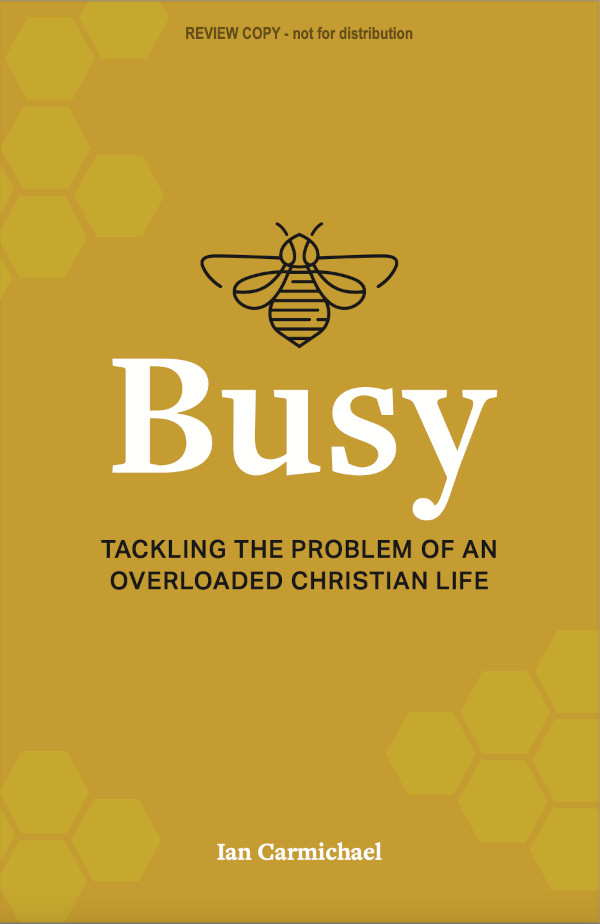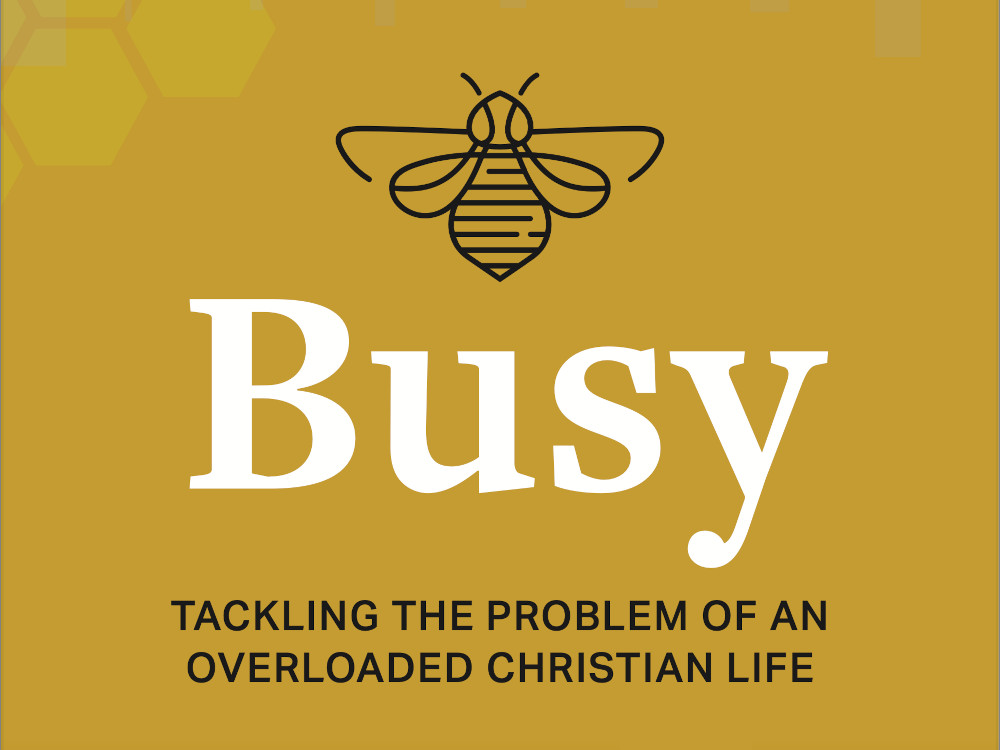An extract from “Busy: Tackling the problem of an overloaded Christian life” by Ian Carmichael, who has been busy running Matthias Media – and I think they published the book, not just because he’s the former CEO – but because it is full of advice on out how to live purposefully busy lives.
In a book on busyness, you’d probably expect at least one tip on time management. So here’s my big tip: don’t waste your time trying to manage time. There’ll be 24 hours in a day no matter what you do.
What you can manage is what you do with the time and energy God gives you. You can decide what to be busy with. As one Christian blogger puts it:
If we want to be faithful, we have to embrace our limits as finite creatures. When the juggler has too many balls in the air, some of them have to fall. It’s better to decide for yourself which balls to drop, instead of waiting for the inevitable.48
And because of the nature of God’s metanarrative and his plan for the new creation, Point B, the most important aspect of your life for you to manage is your relationships: your relationship with God, and your relationships with the people he has placed in your life. People you can influence.
Perhaps you didn’t realise you were an ‘influencer’. But you are, even if you’ve never taken a photo of yourself posing in activewear in front of a mirror and posted it on social media. If you are a Christian, I hereby declare you a ‘Point B Influencer’.
The Bible says your influence has a goal: the goal of glo- rifying God by helping people get to Point B, the kingdom, the new creation—transferred and transformed. And the key way in which you do that is by persistently praying for those people and teaching and modelling the biblically faithful Christian life to them. Whether it’s your spouse, your kids, work colleagues, old friends, new friends, peo- ple at church, or sponsor children; whether they are Chris- tians or non-Christians … the good news of Jesus removing the roadblock to an eternal relationship with God, and the treasure of living in his kingdom, is for everyone.
So since you know you are an influencer, the next important step is to work out who you want to influ- ence and how.
In a life that easily and naturally fills up with non-well- directed busyness, it’s hard to be a Point B Influencer without carving out time and being—to some extent at least—intentional about it.
So I want to encourage you to do an audit.
The relationship audit
That sounds boring and annoying, doesn’t it? Especially if you’ve ever worked in a business where the auditors come in to do their audit once a year. Nobody looks forward to that, with the possible exception of the auditors, who by and large seem to just love that sort of stuff.
“So you’re telling me I’ve read through all those big ideas in chapters 1 to 8, and the way the rubber finally hits the road now is through an audit?! Are you kidding me?! If I’d known …”
No, wait. Trust me, this type of audit is much more enjoyable, because it’s predominantly about people whom you care for deeply.
The detail of the audit exercise is set out in the reflec- tion section below, but the quick summary is that it’s all about listing the key relationships in your life, answering some questions about each of them, and taking action to be more intentional in pursuing the Point B goal with those people.
The aim of the exercise, of course, is to highlight relationships you want to invest in, and give you a clear framework for making decisions about what you choose to be busy with each week—a framework that aligns with God’s metanarrative.
Those highlighted relationships might exist in what feel like quite distinct ‘arenas’ of your life: family, work, sport, church, etc. But the goal is the same regardless of the arena; it’s just that different arenas have different opportunities and challenges for you as a Point B Influ- encer. (I’ll have more to say about this in the three appendices at the end of the book.)
Of course, I should mention that your audit exercise won’t necessarily mean you get busier. The audit is not some perverse prescription for Point B workaholism. It might actually mean you decide to cut back on the num- ber of people you are trying to spend time with, or reduce the things you are trying to get done. The audit is simply a tool to help you wisely make those sorts of assessments in the light of God’s metanarrative and the part you play in it.
Carmichael goes on to give some guides on the audit, essentially a tool to invest your resources in others.

Busy: Tackling the problem of an overloaded Christian life, by Ian Carmichael, Matthias Media $16.99 Available from The Wandering Bookseller

